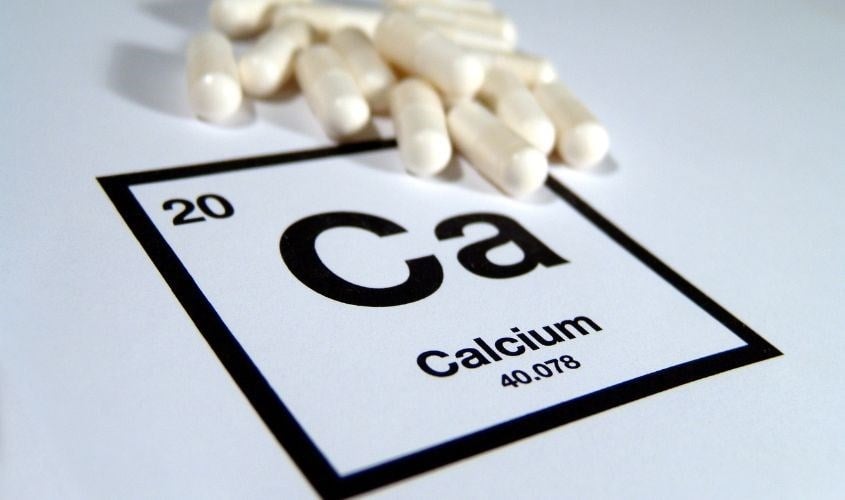The years leading up to menopause can be a tumultuous time for women, marked by a host of changes and challenges. During this stage, the body undergoes a decline in hormone production, leading to a higher risk of aging, menstrual irregularities, and the onset of perimenopausal and menopausal symptoms. Neglecting to address these changes with the necessary nutrients can have a detrimental effect on one’s health and quality of life.
Hence, it is imperative for women to proactively take charge of their well-being from an early stage. However, many are unsure of how to adequately care for themselves to slow down the aging process and maintain long-term wellness.
1. As Women Enter Their Middle Ages, They May Confront Three Concerning Health Risks
Weight Gain and the Threat of Chronic Illnesses
Middle age often brings about inevitable weight gain as the body’s metabolism slows down. Failure to manage this weight gain can result in excess fat accumulation under the skin and around internal organs, increasing the likelihood of chronic conditions such as obesity, hypertension, cardiovascular issues, and diabetes.

Bone and Joint Health Deterioration
Compared to men, women naturally have lower bone density. The decline in estrogen levels during middle age accelerates bone weakness, heightening the risk of osteoporosis, bone fractures, and joint inflammation-related issues.
Menopausal Symptoms
Around the age of 50, women experience physiological changes such as menstrual irregularities, insomnia, and mood swings, signaling perimenopause or menopause. Without timely intervention, this stage can prolong, leading to depression and significant physical and mental health concerns.
Solution: To navigate these changes successfully, middle-aged women should focus on adjusting their diets and ensuring sufficient nutrient intake. This proactive approach effectively slows down aging, enhances overall health, and maintains a desirable quality of life.
2. Gynecologists Recommend: Middle-Aged Women Should Immediately Incorporate These Four Essential Nutrients into Their Diets
As women transition into middle age, their bodies undergo noticeable physical and hormonal changes. To counteract the aging process and safeguard their health, experts advise promptly incorporating the following four critical nutrients into their daily routines:
1. Calcium – Combat Osteoporosis and Maintain a Youthful Physique
Middle-aged women are prone to rapid calcium depletion, increasing the risk of osteoporosis, bone fractures, and impaired mobility. Adequate calcium intake not only strengthens bones but also contributes to slower aging. Include calcium-rich foods such as dairy, eggs, fish, and shrimp in your diet or consult a doctor about calcium supplements.

2. Estrogen – Hormonal Balance and Menopause Symptom Relief
The decline in estrogen levels during middle age is the primary culprit behind hot flashes, insomnia, menstrual irregularities, and depression. Timely estrogen supplementation helps women navigate menopause more smoothly and reduces the risk of bone, joint, and cardiovascular issues.
Phytoestrogen-rich foods like soy products, figs, and seeds, or dietary supplements, are ideal choices to support hormonal balance.
3. Folic Acid – Lower the Risk of Cerebrovascular Accidents
Folic acid is not just crucial during pregnancy; it is equally essential for middle-aged women. Research indicates that a deficiency in folic acid increases the likelihood of cerebrovascular accidents in older adults.
Incorporate folic acid-rich green leafy vegetables, fruits like kiwis, strawberries, and cherries, and soy products into your diet or consider taking supplements under professional guidance.
4. Vitamin B Complex – Fortify the Nervous System and Enhance Sleep Quality
Vitamin B plays a pivotal role in regulating nerve function and promoting restful sleep. Middle-aged women, amidst hormonal fluctuations, often struggle with stress, insomnia, and fatigue. Supplementing with vitamin B soothes the nervous system and improves mood effectively.
Vitamin B-rich foods include whole grains, liver, eggs, dairy, and dairy products.
Recommendation: The body’s aging process commences in our 30s. Therefore, instead of waiting for health concerns to surface, prioritize nutrition earlier in life. This proactive approach is the key to sustaining youthful vigor and long-term wellness through middle age and beyond.
































